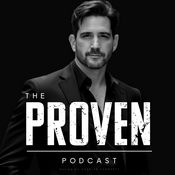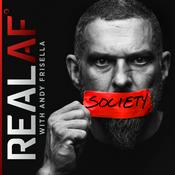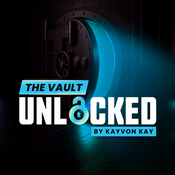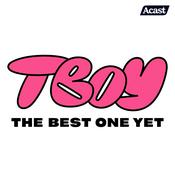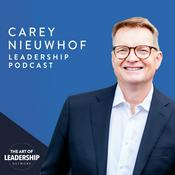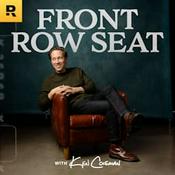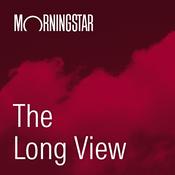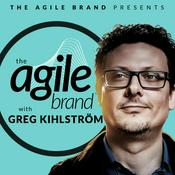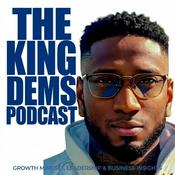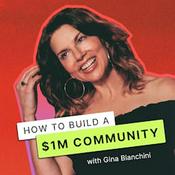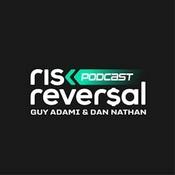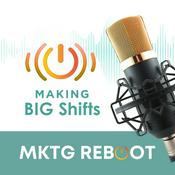158 episodes
- Explore how communities in Altadena are rebuilding after devastating wildfires, with a focus on inclusive, community-led design and architecture. It would spotlight the role of Black architects and collaborations like AfroLA, emphasizing environmental justice and equitable recovery.
- Even though housing is a crisis in every American city, we hear over and over that telling the story effectively is a big challenge. Today, we’re taking lessons on how to tell the story from the filmmakers of four different documentaries.
- New models of collective power are emerging in neighborhoods where residents have always found ways to support one another, even as economic systems excluded and extracted.
In this sponsored episode with the Center for Cultural Innovation and its AmbitioUS initiative, which commissioned a report by the Urban Institute, local leaders share models from Atlanta and New Orleans that bring financial freedom and self-determination to artists and their communities.
“This work is to provide proof of concept that new worlds are possible, that new economic systems are possible, and that they already exist,” said Christopher Audain, Program Officer at AmbitioUS.
In an example from Atlanta, The Guild founder Nikishka Iyengar describes a hybrid land-trust and community-stewardship model that’s keeping housing and commercial space affordable while allowing residents to invest collectively.
“This is not a stepping stone to become an extractive investor,” said Iyengar. “This is a stepping stone to reorient our relationship to land, to each other, to finance, to all of that.”
Meanwhile, Cooperation New Orleans organizers Toya Ex and Tamah Yisrael are part of a network of worker cooperatives formalizing long-standing traditions of mutual aid into a solidarity economy.
“There is a large idea that the capitalist economy is the only way, and time after time history has proven to us that it is not,” said Yisrael, who helped establish Cooperation New Orleans’ loan fund to support small businesses.
“People often do a lot of different things to make a way, even when the capitalist system don’t allow us to make a way,” says Ex, who is also the founder of Project Hustle.
The report on community ownership and self-determination strategies also includes lessons on democratic investment from Boston Ujima Project and on land stewardship from the Sogorea Te’ Land Trust in Lisjan Territory, showing why shared values and ownership are powerful counters to a disempowering economic system. - After a year marked by the undermining of public resources, community development is adapting by finding ways to make progress more resilient.In this episode, Next City Senior Economic Justice Correspondent Oscar Perry Abello looks back at some of the biggest stories from a turbulent year on his beat and draws on what he heard during a national book tour for “The Banks We Deserve.”It’s not all bad news, as Abello looks for signs of a response to the disruptions.“I think maybe just maybe we are entering an uptick in the wave—the up and down waves of community power in community and economic development,” said Abello.Abello highlights the examples of Philadelphia’s Kensington Corridor Trust, the Kingsbridge Armory in the Bronx, and Denver’s Tierra Colectiva, showing how each model for community-led ownership is evolving the sector. Plus, Abello outlines where community development leaders are exploring new sources of funding beyond Washington.
nextcity.org Next City’s Top Stories on Economic Justice in 2025
Catch up on this year’s most-read reporting on inclusive finance, community development and economic empowerment.
https://nextcity.org/urbanist-news/next-citys-top-stories-on-economic-justice-in-2025
nextcity.org
The Banks We Deserve
Oscar Perry Abello’s new book shows how banks’ money-creation power can be democratized. Helping communities tap into that power could address our climate, housing and economic crises. - As federal investment withdraws from communities already disadvantaged, city-builders are searching for ways to make progress, which may first require Americans to find common ground and reclaim a shared sense of the public good.
In this episode, recorded live at the Small Business Anti-Displacement Network’s annual conference, Dr. Lauren Smith, Vice President of Strategic Portfolios at the Robert Wood Johnson Foundation, discusses the role philanthropy can realistically play as federal disinvestment threatens communities. (Next City is funded in part by RWJF.)
Drawing on her background as a pediatrician and public health leader, Smith pushes back on narratives that frame well-being as an individual rather than a collective responsibility.“There’s a strong tradition in the United States of individualism, in the idea that you alone are responsible for your health and well-being, and if you just make better choices, you can obtain health on your own,” said Smith. “As a public health person and as a clinician, I can tell you that that’s not accurate, both just logically and philosophically.”
Smith calls for greater acknowledgment of policies and programs that advance the “public good” and cites a RWJF-commissioned survey that identifies common ground across political and geographic divides.“There were key aspects that people really did agree on, especially around as it relates to their community,” said Smith. “People are incredibly concerned about affordability, and that cuts across all sorts of groups—affordability of housing, affordability for their neighbors.”
“They didn't call it displacement, but essentially they were saying, we are concerned that affordability is going to lead to displacement,” she said.
More Business podcasts
Trending Business podcasts
About Next City
Join Lucas Grindley, executive director at Next City, where we believe journalists have the power to amplify solutions and spread workable ideas. Each week Lucas will sit down with trailblazers to discuss urban issues that get overlooked. At the end of the day, it's all about focusing the world's attention on the good ideas that we hope will grow. Grab a seat from the bus, subway, light-rail, or whatever your transit-love may be and listen on the go as we spread solutions from one city to the Next City .
Podcast websiteListen to Next City, Proven Podcast and many other podcasts from around the world with the radio.net app
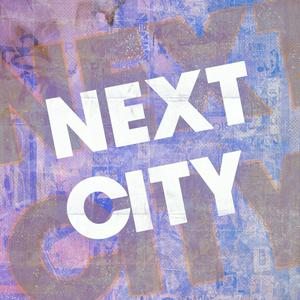
Get the free radio.net app
- Stations and podcasts to bookmark
- Stream via Wi-Fi or Bluetooth
- Supports Carplay & Android Auto
- Many other app features
Get the free radio.net app
- Stations and podcasts to bookmark
- Stream via Wi-Fi or Bluetooth
- Supports Carplay & Android Auto
- Many other app features


Next City
Scan code,
download the app,
start listening.
download the app,
start listening.


